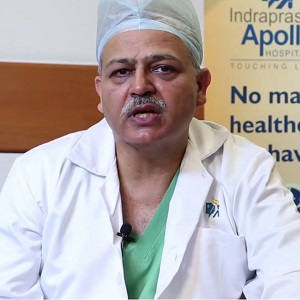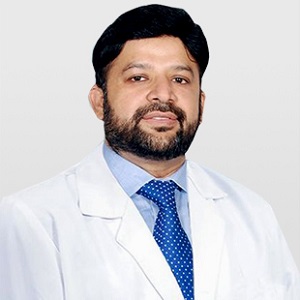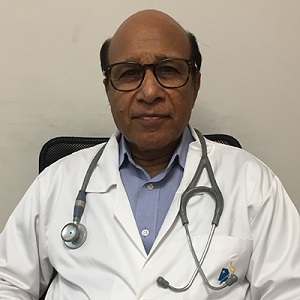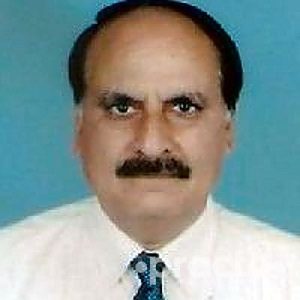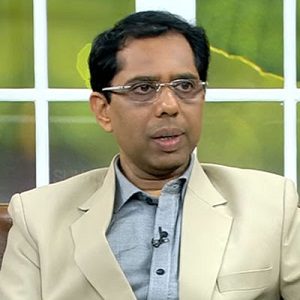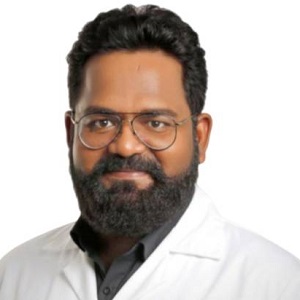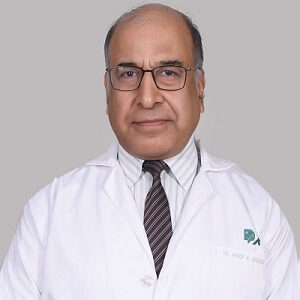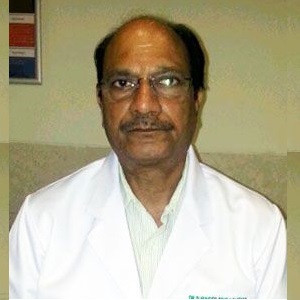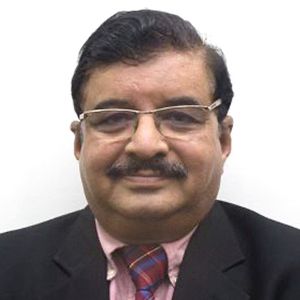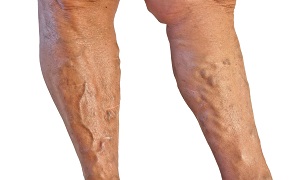Best Sclerotherapy Doctors in India
- Vascular Surgeon, New Delhi, India
- Over 35 years’ experience
Profile Highlights:
- Dr. Rakesh Mahajan is one of the best Vascular Surgeons in India. He has an experience of 35 years.
- He is a member of the Vascular Society of India and other eminent societies.
- Dr. Rakesh Mahajan is experienced in the diagnosis and treatment of vascular and related disorders.
- He qualified for the prestigious Intercollegiate Exam in the UK and was awarded a CCST certificate.
- Vascular & Endovascular Surgeon, New Delhi, India
- Over 18 years’ experience
Profile Highlights:
- Dr. Suhail Naseem Bukhari is a well-known Vascular Surgeon with an experience of 18 years.
- He is proficient in carrying out procedures such as Spinal and Cerebral Tumor Embolization, Angioplasty and Stenting, Embolization for Fibroid, Head, and Neck Tumour Embolization and Acute Stroke Thrombectomy, etc.
- Vascular Surgeon, New Delhi, India
- Over 35 years’ experience
Profile Highlights:
- Dr. Jaisom Chopra is the epitome of all the Vascular Surgeons in India as well as abroad.
- He has performed more than 7000 surgeries in his lifetime.
- Dr. Chopra’s chief field of interest lies in surgeries related to varicose veins.
- Vascular Surgeon, New Delhi, India
- Over 23 years’ experience
Profile Highlights:
- Dr. K K Pandey is one of the best Vascular and Endovascular surgeons in India; currently working with Indraprastha Apollo Hospitals, New Delhi as a consultant.
- He has experience of over 2 decades in vascular surgery. Dr. Pandey is trained to diagnose and manage various simpler to the life-threatening health issues.
- His specialization includes diabetic foot treatment, Varicose Veins Treatment & Surgery, Venous Angioplasty & Stenting, MV replacement, chest tumors, and Sclerotherapy.
- Dr. Pandey has a couple of book publications, research, and award for excellent surgical skills to his credit.
- Vascular Surgeon, Chennai, India
- Over 30 years’ experience
Profile Highlights:
- Dr. V Balaji is currently working in Chennai, Tamil Nadu as an expert Vascular Surgeon.
- He has treated numerous people with chronic and acute problems, which include Pediatric and geriatric populations too.
- He is currently in touch with a fellowship related to endo Vascular Surgery and pancreas transplantation.
- Vascular Surgeon, Gurugram, India
- Over 20 years’ experience
Profile Highlights:
- Dr. Himanshu Verma has been a well-known vascular surgeon for the last two decades. He worked in the USA (Mayo) for several years apart from his decade of experience in the top medical centers of India.
- He has performed innumerable surgeries throughout his life including 3000 complex AV Fistula for Hemodialysis Patients.
- Dr. Himanshu Verma is one of those first persons, who nurtured the idea of performing vascular surgeries under Local Anaesthesia. This way numerous patients across the globe can walk away from the Post Anaesthesia complications.
- Cardiothoracic Surgeon and Vascular Surgeon, New Delhi, India
- Over 42 years’ experience
Profile Highlights:
- Dr. Anoop K Ganjoo is one of the best cardiologists & cardiothoracic surgeons in India with a total experience of 42 years.
- Dr. Ganjoo has a rich experience of over two decades in several complicated procedures, like Mitral valve repair and replacement, Peripheral and Coronary angiography & angioplasty, vascular surgery, ICD, diffuse coronary artery disease, Pacemaker, Radiofrequency ablation of arrhythmias, adult Cardiothoracic Surgery, CRT implantation, Balloon valvuloplasty, and PDA device closure.
- Vascular Surgeon, Gurugram, India
- Over 38 years’ experience
Profile Highlights:
- Dr. Surinder Singh Khatana is an eminent name in the country for conducting more than 1000 vascular surgeries to date.
- He has been the chief cardiac surgeon at various prestigious hospitals both nationally and internationally.
- He has served in the Indian Army for 30 years.
- Vascular Surgeon, New Delhi, India
- Over 35 years’ experience
Profile Highlights:
- Dr. (Col) Kumud Rai belongs to the top class of Vascular Surgeons in India. He has more than 25 years of experience in being a Vascular Surgeon.
- Dr. Kumud Rai has been a Tutor for the Royal College of Surgeons in the UK and an examiner in several MCHs.
- Dr. Rai has spent a major part of his life serving the Indian Army in both educational and professional sectors.
Best Sclerotherapy Hospitals in India
Indraprastha Apollo Hospital, New Delhi
- City: New Delhi, India
Hospital Highlights:
- Indraprastha Apollo Hospital is a 700-bedded multispecialty hospital in the heart of the capital of India. It is a part of Apollo Hospital group, one of India’s most reputed healthcare chains. Indraprastha Apollo Hospital has been accredited by Joint Commission International, making it the first internationally accredited hospital in the country in 2005.
- There are 52 specialties in the hospital with one of the best cardiology centers in the country. The hospital is also equipped with State of the art infrastructure facilities with the largest Sleep Lab in Asia and the largest number of ICU bed facilities in India.
- The hospital also has one of the largest dialysis units in India along with a dedicated Bone Marrow Transplant unit.
- The latest and highly advanced technologies that are installed in the hospital include Da Vinci Robotic Surgery System, PET-MR, PET-CT, Cobalt-based HDR Brachytherapy, Brain Lab Navigation System, Tilting MRI, Portable CT scanner, 3 Tesla MRI, 128 Slice CT scanner, DSA Lab, Endosonography, Hyperbaric Chamber and Fibro scan.
Fortis Memorial Research Institute, Gurugram
- City: Gurugram, India
Hospital Highlights:
- Fortis Memorial Research Institute is a multi-super-specialty, quaternary care hospital with 1000 beds. The hospital comprises reputed clinicians, and international faculty and is also equipped with cutting-edge technology. The hospital is a part of Fortis Healthcare Limited, a reputed chain of private hospitals in India.
- It is a NABH-accredited hospital that is spread across 11 acres of land and has a capacity of 1000 beds. The hospital has 55 specialties and is one of the premier health care centers in the Asia Pacific region popularly known as “the Mecca of Healthcare”.
- The hospital has 260 diagnostic centers and is also equipped with the latest and advanced techniques that include 3 Telsa which is the world’s first Digital MRI technology. The hospital also has world-class Radiation Therapy techniques which have been developed by leading technology experts from Elekta and Brain Lab.
Apollo Hospital, Chennai
- City: Chennai, India
Hospital Highlights:
- Apollo Hospitals, Chennai, is one of the best hospitals for heart care in India. Over the years, Apollo has expanded all over India, as a healthcare chain.
- India’s first ‘Only Pancreas’ transplant was performed in Apollo Hospital. The hospital is known for successfully performing Asia’s first en-bloc combined heart and liver transplant, and over the years, it has attained a remarkable achievement in the global healthcare space. Around 3-4 organ transplants are performed in the hospital per day.
- Equipped with over 500 beds, this hospital in Chennai was established in 1983 and since then has been among the most preferred hospital for patients from all over the world.
- The hospital holds accreditation of the NABH and JCI and is the first hospital in India to be ISO 9001 and ISO 14001 certified. It is also the first South Indian Hospital to receive subsequent reaccreditation from the JCI USA 4 times.
Medanta-The Medicity, Gurgaon
- City: Gurugram, India
Hospital Highlights:
- One of India’s best and largest multi-specialty hospitals, Medanta was built with the aim to bring India to the highest standards of medical care. The hospital has been providing the best medical services to its patients, since its inception, with care, commitment, and compassion.
- Equipped with 1250 beds, the hospital was founded by Dr. Naresh Trehan in the year 2009 with an aim to provide the best medical care at affordable costs. The hospital is spread across 43 acres and includes 45 operation theatres and 350 beds dedicated solely to ICU. The hospital includes over 800 doctors, and more than 22 specialty departments and has a dedicated floor for individual specialty in order to offer the best services under one roof.
- The hospital is considered one of the premier institutes in India for Cardiac Care and includes staffs and members of high caliber. The hospital has 6 distinct centers of excellence.
Max Super Specialty Hospital, New Delhi
- City: New Delhi, India
Hospital Highlights:
- One of the well-regarded providers in India committed to the highest standards of clinical excellence and patient care, Max Super Specialty Hospital is a part of Max Healthcare, which is the second-largest healthcare chain in India. Regarded as one of the most well-regarded healthcare providers in the country, Max Super Specialty Hospital is committed to the highest standards of clinical excellence as well as patient care. The hospital is also equipped with the latest technology as well as cutting-edge research. The hospital is known to deliver and ensure the highest level of patient care.
- The hospital has more than 500 beds and offers treatment for over 35 specialties. The hospital also holds the credit of having installed the first Brain Suite in Asia. This is a highly advanced Neurosurgical machine that allows MRI to be taken while surgery is ongoing.
- Other advanced and latest technologies are also installed in the hospital such as the 1.5 Tesla MRI machine, 64 Slice CT Angiography, 4D ECHO, LINAC, and 3.5T MRI machine.
Artemis Hospital, Gurugram
- City: Gurugram, India
Hospital Highlights:
- One of the most well-known hospitals in the Delhi NCR, Artemis Hospital is the first hospital in Gurugram to get accredited by the Joint Commission International.
- With more than 40 specialties, the hospital has been designed to be one of the most technically advanced hospitals in the country, with the best medical and surgical health care. The hospital has eleven special and dedicated centers, for Heart, Cancer, Neurosciences, etc.
- The latest technologies in the hospital include Endovascular Hybrid Operating Suite and Flat panel Cath Labs for the cardiovascular department, 3 Tesla MRI, 16 slice PET CT, 64 Slice Cardiac CT Scan, HDR Brachytherapy, and highly advanced Image Guided Radiation Therapy techniques (LINAC) are installed in the hospital.
- The hospital has won several awards as well, since its inception.
BLK Max Super Specialty Hospital, New Delhi
- City: New Delhi, India
Hospital Highlights:
- Equipped with 650 beds, BLK Superspecialty Hospital is the largest stand-alone private sector hospital in Delhi.
- With over 1500 healthcare providers and 150 globally renowned super specialists, the hospital is one of Asia’s largest Bone Marrow Transplant Centres. The hospital is known for having some of the best cancer doctors in the country.
- The hospital is NABH and NABL accredited and was inaugurated by the first Prime Minister of India. Pt. Jawahar Lal Nehru.
Gleneagles Global Hospitals, Chennai
- City: Chennai, India
Hospital Highlights:
- Established in 1999, Gleneagles Global Hospital, Chennai, is one of the top healthcare facilities in Southern India. It is part of the Gleneagles Hospital Chain, which is the fourth largest healthcare chain in the country. The hospital specializes in multi-organ transplants of kidneys, liver, lungs, heart, etc.
- The hospital has an excellent infrastructure and state-of-the-art lab and equipment set-up. The hospital boasts cutting-edge technologies, a highly skilled team of doctors and surgeons, and trained support staff. Located in Perumbakam, Chennai, it is one of India’s premier health care destinations. The hospital has performed some of the most complex surgical and clinical procedures in India including multi-organ transplantations.
- The hospital’s lung transplantation program is one of the best in the country. The hospital is known for having performed India’s first single lung transplant and first minimal invasive lung transplant. It is also the only Indian hospital to be associated with King’s College Hospital, London, United Kingdom for liver transplantations.
Fortis Hospital, Mulund, Mumbai
- City: Mumbai, India
Hospital Highlights:
- Fortis Hospital in Mulund is a 315-bed multi-speciality tertiary care hospital with five JCI accreditations that offers a wide variety of diagnostic and therapeutic services. The Fortis Hospital in Mulund delivers patient-centred treatment with cutting-edge technology, highly skilled and experienced surgeons, and paramedical staff.
- This institution houses Maharashtra’s largest multi-organ transplant centre. It is also the first heart transplant centre in western India to conduct 100 or more consecutive heart transplants in under four years. It is the only hospital in the city to have multi-organ transplants and has handled the youngest patient for angioplasty. Fortis Hospital Mulund now boasts the first advanced surgical robot in central Mumbai.
- Cardiology and heart surgery, urology, nephrology, neurosciences, orthopaedics, digestive care, emergency and critical care, and maternity care are among the services provided by the hospital.
Kokilaben Dhirubhai Ambani Hospital, Mumbai
- City: Mumbai, India
Hospital Highlights:
- Kokilaben Dhirubhai Ambani Hospital, Named after the wife of Indian industrialist Dhirubhai Ambani, the founder of Reliance Industries, this is one of the top hospitals in Mumbai. This 750-bed multi-specialty hospital became operational in 2009. Known as one of India’s most advanced tertiary care facilities, the hospital is designed to raise India’s global standing as a healthcare hub, with an emphasis on excellence in clinical services.
- Kokilaben Dhirubhai Ambani Hospital uses Protocol and Care Pathway based treatment models to ensure the best outcomes for patients.
- The hospital represents a confluence of top-notch talent, cutting-edge technology, state-of-the-art infrastructure, and, most importantly commitment.
- The hospital also holds the accreditation of the NABH, NABL, CAP, and JCI.
- The hospital has been recognized as the No. 1 Multispecialty Hospital in Mumbai and the West Zone for the fifth year in a row in 2020 by The Week.
Sclerotherapy
Sclerotherapy is a minimally invasive procedure for treating varicose veins and spider veins. Varicose veins are known to cause itching, pain, cramping as well as discoloration. Spider veins are smaller and compared to varicose veins, they are less severe.
In addition to diminishing the appearance of varicose or spider veins, the procedure also helps to reduce pain or side effects that are caused by damaged veins. Although anyone can get varicose veins, they are more common in men than women.
After sclerotherapy is performed, the treated veins usually fade within a few weeks. Although, occasionally, seeing full results might require a month or two.
Purpose
Sclerotherapy can be done for cosmetic procedures to improve the appearance of the varicose and spider veins. It can also be done to improve symptoms related to these conditions. These symptoms can include aching, swelling, burning, night cramps, etc.
It is important to note that if done for cosmetic reasons, then the cost may not be covered by your insurance.
Preparation
Before the procedure, your doctor will perform a physical exam as well as ask you about your medical history. The physical exam will involve evaluating the involved veins or checking for any underlying blood vessel disease.
You might also need to stop taking medications, such as aspirin or blood thinners, as they can increase the chances of bleeding.
Depending on which of your veins are involved, your doctor might be requesting ultrasound imaging on the veins in your legs. Ultrasound is a painless procedure which can produce images of structures inside your body with the use of sound waves.
On the day before the procedure, do not shave and avoid applying any lotion to your legs. You need to avoid shaving and applying lotion even after the procedure until the injection site is healed. Remember to wear loose and comfortable clothing. It is better if you wear a pair of shorts so that your legs are exposed.
Procedure
Generally, sclerotherapy is performed in a doctor’s office and it doesn’t require the use of anesthesia. It requires less than an hour to complete.
Depending on how severe your condition is, the treatment should take anywhere between 15 minutes to an hour. If you are getting the treatment on your legs, you might be required to lie on your back with your legs elevated.
Depending on how far below the skin the vein is, an ultrasound might be needed as part of your procedure.
Your doctor will clean the skin around the targeted veins. Then with a fine needle, the damaged veins will be injected with a sclerosing agent. The liquid or foam solution will cause the walls of the injected vein to seal shut. Therefore, blood is then redirected to unaffected veins. Over some time, your body will be absorbing the damaged vein, making it less visible and uncomfortable.
You might require up to four treatments based on the size of the treated veins.
After the procedure
You will be able to get up and walk around after the procedure is complete. It is important to walk and move your legs to prevent the formation of blood clots.
You might be asked to wear compression stocking or bandages, for around two weeks, as they can help maintain compression on the treated veins.
Although most people return to their normal routine, it might be wise to have someone drive you home after your procedure. Your doctor might also advise you to avoid any kind of strenuous exercise for a minimum of two weeks after the procedure.
It is also important to avoid sun exposure to the treated areas during this time. The inflammation caused by the injections can lead to dark spots on your skin if it is exposed to the sun. This is more likely if you have a dark skin tone.
Results
Smaller varicose veins and spider veins generally respond quite well to sclerotherapy. You should be able to see improvement within just a few weeks. For larger varicose veins, to see any improvement, it can take up to four months.
In some cases, several sessions of the treatment might be required for eliminating all the varicose or spider veins.
Before you undergo the procedure, it is also important to have realistic expectations about the effectiveness of the treatment. It doesn’t guarantee that there will be no traces of side effects of varicose or spider veins after you undergo the procedure.
Risks
In some cases, sclerotherapy can lead to a few serious complications. Some of the side effects that might occur at the site of the injection include bruising, raised red areas, small skin sores, multiple tiny red blood vessels and darkened skin in the form of lines or spots.
Though most of these side effects should generally go away within a few days or weeks, in a few cases, some side effects might take months or even years to completely disappear.
There might be few other complications as well, although these are less common. They include:
- Inflammation- Usually, this is mild but may sometimes cause swelling, warmth, and discomfort around the injection site. Your doctor may suggest an over-the-counter pain reliever to reduce the inflammation.
- Blood clot- A lump of clotted blood can form in a treated vein. In rare cases, a blood clot may even travel to a deeper vein in your leg. This is known as deep vein thrombosis, which is an emergency situation, where the clot travels from your leg to your lungs and blocks a vital artery. It is important to seek immediate care, if you experience any difficulty in breathing, chest pain, or dizziness or if you cough up blood.
- Air bubbles- Tiny air bubbles may rise in your bloodstream and although they don’t always cause symptoms, in some cases, they might. Symptoms can include visual disturbances, fainting, headaches, and nausea. These symptoms can go away generally, but it is important to call your doctor if you experience problems with limb movement or sensation after your procedure.
- Allergic reaction- Sometimes you might also develop an allergic reaction to the solution used for treatment, although this is uncommon.

